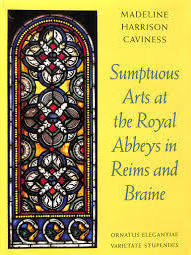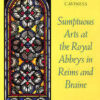Sumptuous Arts at the Royal Abbeys in Reims and Braine: Ornatus Elegantiae, Varietate Stupende
90,00€ Il prezzo originale era: 90,00€.85,50€Il prezzo attuale è: 85,50€.
–
Autore: Madeline Harrison Caviness
Editore: Princeton
Collana: –
Solo 1 pezzi disponibili
Within the historical context of twelfth-century France, a period rich in artistic transformations, this book reconstructs and evaluates two major but virtually unstudied collections of stained glass that function as part of larger schemes of decoration: the glazing of Saint-Remi at Reims, a wealthy monastery with strong ties to the French crown, and Saint-Yved at Braine, a church that served canons and secular patrons. Here Madeline Caviness shows how the problems addressed by the painters, known also for their work at Canterbury, enhance our understanding of stained glass as a monumental art form that evolved with architecture in this period. At the same time she offers much new information on workshop practices around the year 1200.
In studying an era of transition when the strength of the monasteries had not yet waned, but when the secular, often female, donor began to emerge as a crucial force, the author examines the character of patronage and iconographic choices, together with the political, intellectual, and artistic climates in which these windows were created. She points out thematic links running through each of the two buildings, while revealing the various decorations as powerful spiritual and political statements affecting the minds of those who were exposed to them.
Cod: 9780691040585
| Autore | |
|---|---|
| Editore | |
| Pagine | |
| Formato | |
| Anno |
Recensisci per primo “Sumptuous Arts at the Royal Abbeys in Reims and Braine: Ornatus Elegantiae, Varietate Stupende” Annulla risposta
Prodotti correlati
RELIGIONI
ANTROPOLOGIA e SOCIOLOGIA
Una famiglia come un’altra. I nuovi rapporti fra madri, padri e figli dopo il divorzio
SCIENZE SOCIALI E UMANE
Una giornata nell’antica Roma. Vita quotidiana, segreti e curiosità













Recensioni
Ancora non ci sono recensioni.